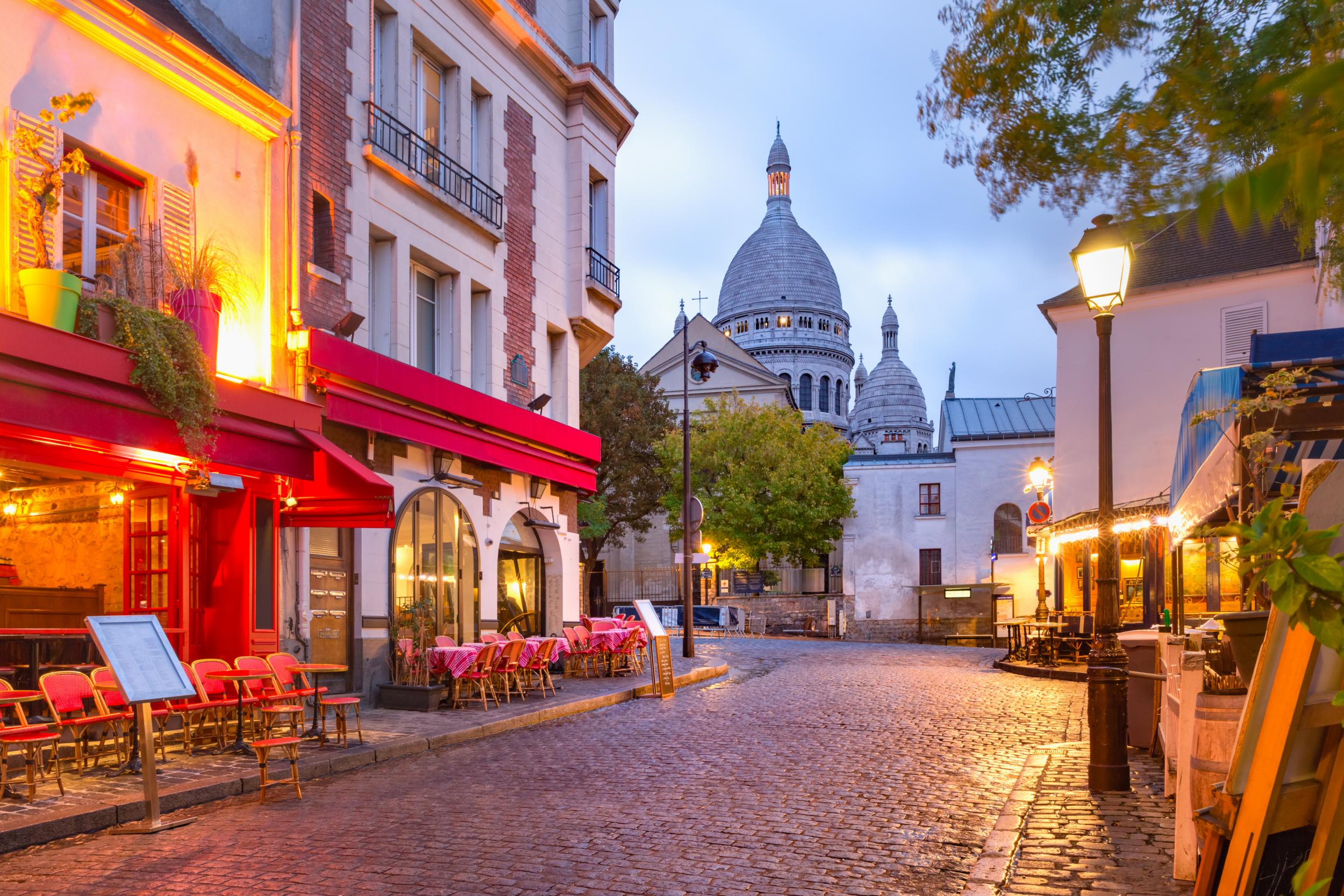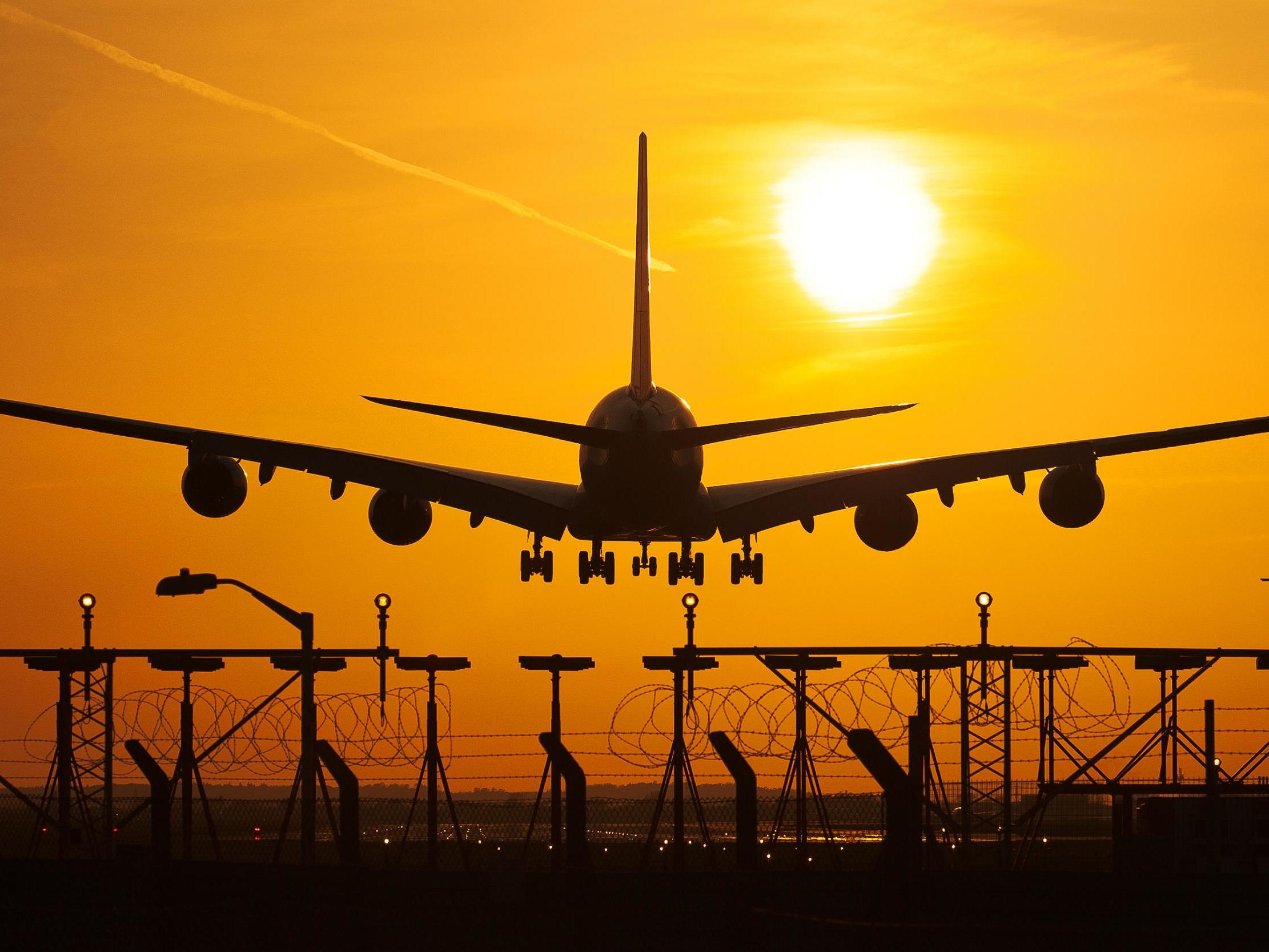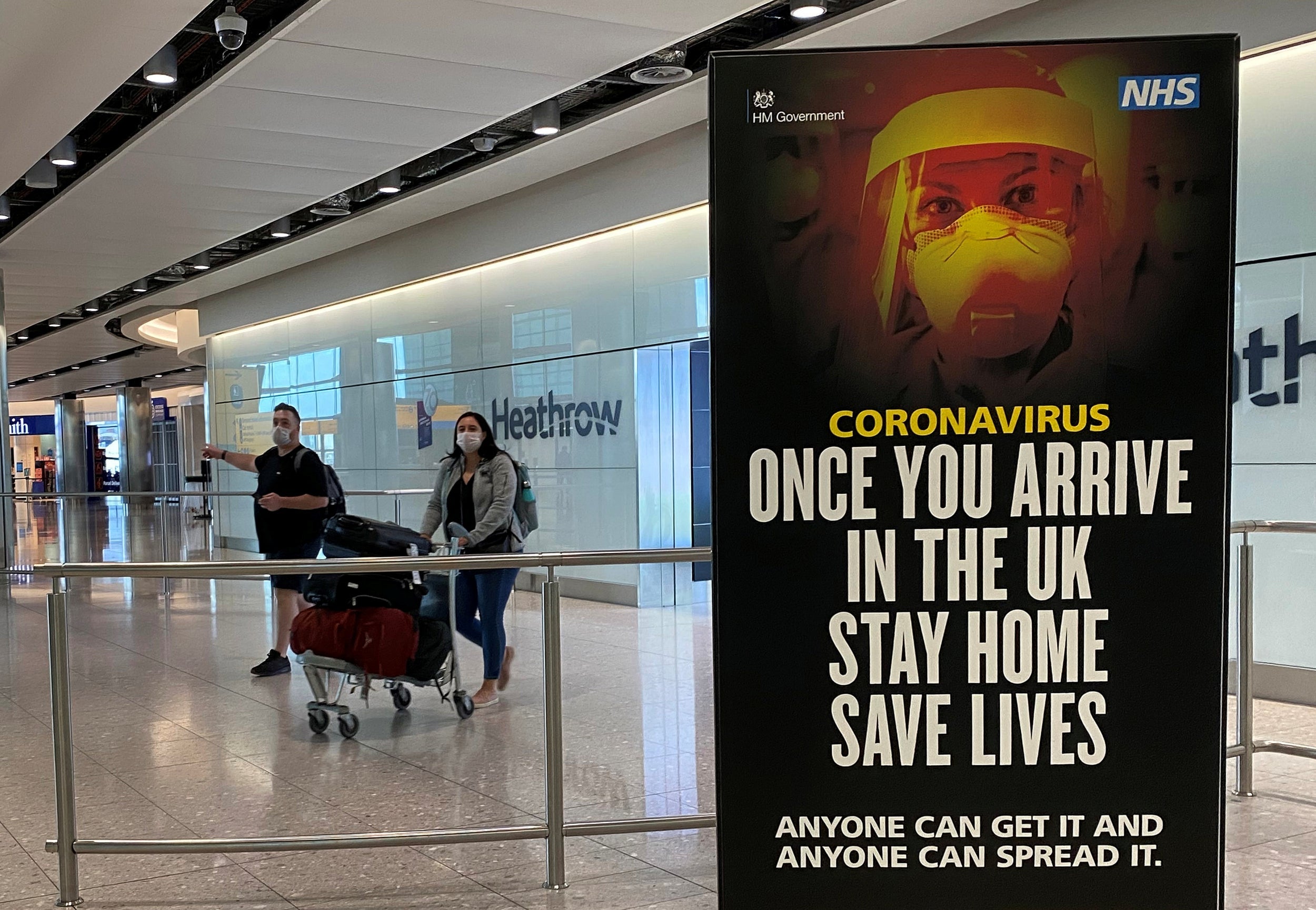After my wife returns from her trip to France, will I have to self-isolate as well?
Simon Calder answers your questions on living with someone who’s recently travelled, receiving refunds and removing chairs from planes


Q My wife needs to visit an elderly relative in France soon. She knows she will have to be quarantined on her return. As I will drive her back from the airport and be living in the same house as her, will I have to self-isolate too? Do you have any idea of my position?
Name supplied
A From 8 June, almost all arrivals at British airports, ferry ports and international rail terminals will be required to self-isolate for 14 days. The onerous conditions reflect a presumption that everyone coming into the UK has Covid-19.
In return, France has said it will impose a tit-for-tat quarantine, though this looks highly voluntary.
There are strict rules in place for returning UK quarantinees – yes, that is the term for people who are self-isolating. The Home Office says they should not have visitors, including friends and family, unless they are providing essential support.
The official advice to travellers is: “If you’re at home or staying with friends or family, avoid contact with the people you’re staying with and minimise the time you spend in shared areas.” But as a member of the same household you need to self-isolate.
Having said that, if your wife can time her journey for, say, late July, I am pretty confident that she will not be required to undergo quarantine on her return. Wiser heads in the government are desperate to limit the severe economic and emotional damage of this ill-thought-through policy and get it reversed as quickly as possible.
So I believe it will be removed, or at least a political fudge will be found that removes the self-isolation requirement from all our popular destinations. I think there is only a vanishingly small possibility of it persisting beyond 24 July, the day that France will open up some more.
If your wife can wait a couple of months, she should have a trouble-free trip.

Q I would like to propose an idea for the “new normal” of flying. Given the need to socially distance, why don’t airlines physically remove the middle seat on planes? They would shed both the passenger’s and the seat’s combined weight, as well as one individual’s luggage. Wouldn’t this produce fuel savings and offset the lost passenger revenues?
Neil C
A Since the coronavirus pandemic began, airlines have come up with all manner of ideas aimed at reducing the risk of passengers contracting Covid-19 from one another.
As is clear to anyone who has ever been on a busy aircraft, two metres of social distance is incompatible with passenger aviation. To achieve this, airlines would need to block out alternate rows of seats and allow only one passenger to sit on each side of the remaining rows. A 180-seat jet would end up with around 30 passengers on board, and the carrier would quickly go bust.
During the coronavirus crisis, various carriers have temporarily brought in the promise of leaving the middle seat empty, to allow social distancing of one metre. But many of these offers are strictly time-limited, and depend on the present very low level of bookings. With airlines under unprecedented financial pressure, many would be delighted to see sold-out flights again.
As longer-term measures for containing the spread of Covid-19, carriers have urged the use of temperature checks, mask-wearing and other strategies. These measures may have a marginal impact on reducing risk. Your proposal for ensuring a greater degree of separation – and at the same time increasing comfort, with no middle seats – certainly deserves consideration. But I fear it may not be entertained for long.
The first practical hurdle is that economy seats are manufactured and fitted in sets of three. “Stand-alone” seats would not only be ferociously expensive, but there could well be some safety challenges. Conventional aircraft seating is certified for withstanding forces of 16g, in other words, 16 times the force of gravity; the idea is that most accidents are survivable, if the plane’s interior is robust enough. Designing and certifying single seats could devour time and money.
Certainly, there would be a marginal saving in fuel, but on a 50-tonne aircraft, the subtraction of (generously) six tonnes of passengers, seats and baggage would not be significant in saving costs.
Cutting out one-third of potential revenue would, though, be very significant in reducing revenue, and I can’t see any airline adopting exactly what you propose. But I certainly anticipate carriers offering the option to buy an empty adjacent seat.

Q In your article about the new quarantine measures, you say that legally holidaymakers aren’t entitled to cancel and get a full refund because the travel company is able to fulfil their contract; the need to self-isolate on return is not their problem. Yet you’ve mentioned in the past this would be a significant change to your holiday and therefore you could cancel. Which is it?
Name supplied
A The circumstances you describe are these: under the quarantine policy that takes effect on 8 June, almost all arrivals to the UK will be obliged to go straight home and remain there for two weeks under strict lockdown, with “regular checks” to ensure they are complying.
Naturally, many of the millions of holidaymakers booked to travel away this summer are horrified at the prospect of having to self-isolate – and say they will not be able to meet this condition because of work, education or family commitments. Or perhaps just because they can’t bear the thought of being stuck indoors for a fortnight in the middle of summer.
The reason I say that they cannot legally change is because the package holiday concludes at the arrival airport at the end of the homebound flight. The presumption at this stage is that the tour operator will be able to provide this, and that is where its responsibility ends. So while there is a very significant change to the normal aftermath of a holiday, it is not governed by the package travel regulations.
In contrast – and I think this is what you are referring to in terms of what I have previously said – if quarantine prevails in your destination country, that would most definitely be a significant change. A fortnight in the Med would not be the same if you had to spend all of it in your hotel room or apartment. So entitlement to a refund would be automatically triggered.
In practice, though, I do not expect holiday companies to operate packages where their customers would face quarantine, and therefore this is academic.
Email your question to s@hols.tv or tweet @simoncalder
Join our commenting forum
Join thought-provoking conversations, follow other Independent readers and see their replies
Comments